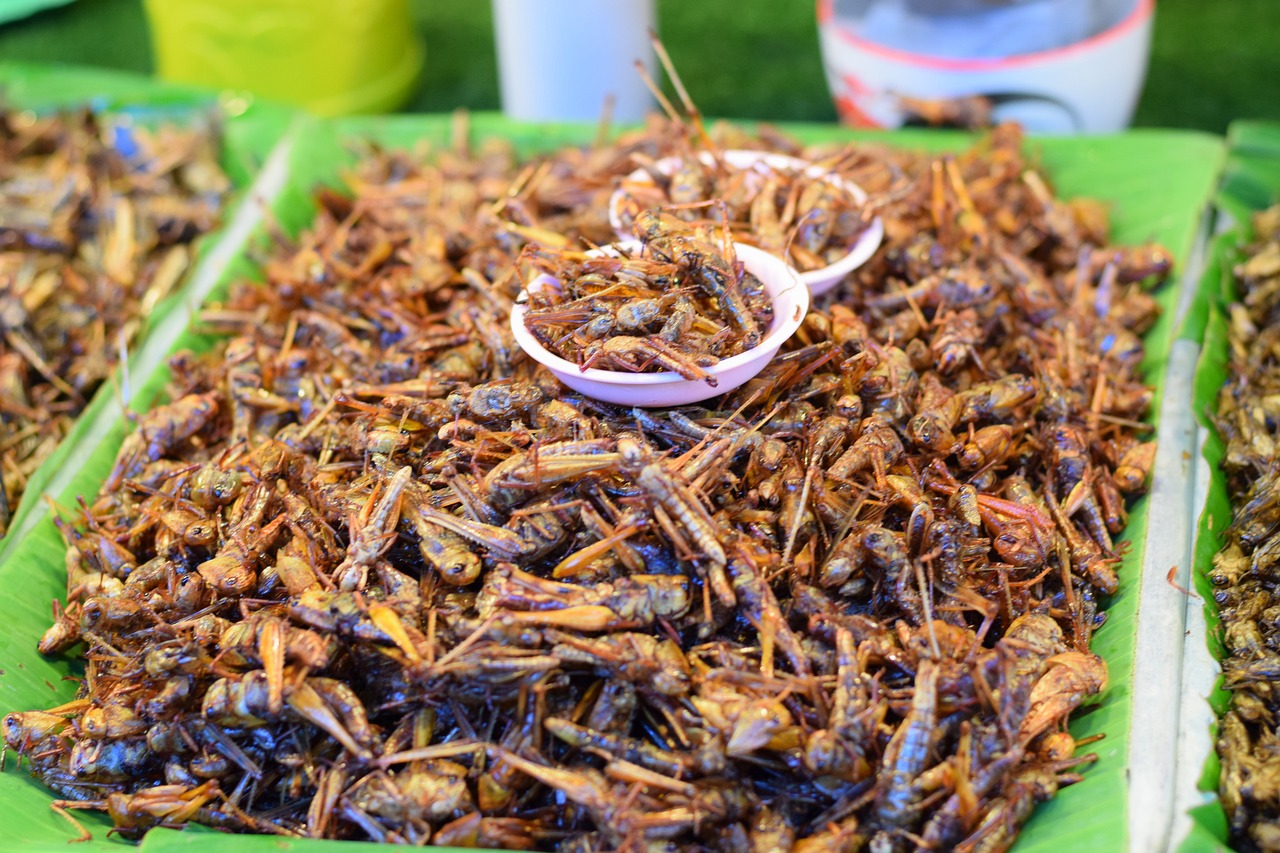O futuro da alimentação ou vetores de doenças? - bibliografia
Por: Ana Pereira1, Bárbara Gomes1, Diana Lapo1, Fyona Oliveira1, Inês Sales1, Isabel Pinto1, Joana Silva1, Teresa Letra Mateus1,2
1 Escola Superior Agrária, Instituto Politécnico de Viana do Castelo
2 Center for Research and Development in Agrifood Systems and Sustainability (CISAS), Viana do Castelo
RESUMO
Os insetos são seres vivos invertebrados que, ao contrário de muitas outras espécies, não possuem esqueleto interno, mas sim um exoesqueleto rico em quitina, que lhes conferem rigidez. Sabe-se que constituem cerca de 80% das espécies animais que existem no Planeta. Se por um lado são de elevada importância no que concerne à recuperação dos ecossistemas, pela produção de bioenergia, realização de decomposição de resíduos, e por serem potenciais fontes alimentares para o Homem e animais, por outro lado são uma das principais fontes de transmissão de doenças infeciosas, muitas destas zoonóticas, além de destruírem plantas e frutos dos quais se servem para alimento ou habitat.

BIBLIOGRAFIA
Aguilar-Toalá, J. E., Cruz-Monterrosa, R. G. e Liceaga, A. M., 2022. Beyond Human Nutrition of Edible Insects: Health Benefits and Safety Aspects. Insects, 1, 13, 11.
Aiello, D., Barbera, M., Bongiorno, D., Cammarata, M., Censi, V., Indelicato, S., Mazzotti, F., Napoli, A., Piazzese, D. e Saiano, F., 2023. Edible Insects an Alternative Nutritional Source of Bioactive Compounds: A Review. Molecules, 10, 28, 2, 699.
Belluco, S., Bertola, M., Montarsi, F., Martino, G. D., Granato, A., Stella, R., Martinello, M., Bordin, F. e Mutinelli, F., 2023. Insects and Public Health: An Overview. Insects, 14, 3, 240.
Bertelsmeier, C., 2021. Globalization and the anthropogenic spread of invasive social insects. Curr, Opin. Insect Sci., 46, 16-23.
Dangalle, C.D., 2021. Insect vectors of human viral diseases: Can they transmit COVID-19?. Sri Lankan Journal of Biology, 6, 1, 3-14.
Florença, S. G., Guiné, R. P. F., Gonçalves, F. J. A., Barroca, M. J., Ferreira, M., Costa, C. A., Correia, P. M. R., Cardoso, A. P., Campos, S., Anjos, O. e Cunha, L. M., 2022. The Motivations for Consumption of Edible Insects: A Systematic Review. Foods, 11, 22, 3643.
Franklinos, L. H. V., Jones, K. E., Redding, D. W., e Abubakar, I., 2019. The effect of global change on mosquito-borne disease. The Lancet Infectious Diseases, 19, 9, 302-312.
Johnson, F. N. e Triplehorn, C. A. 2004. Borror and DeLong's Introduction to the Study of Insects. Cengage Learning, 7ª Ed., 888pp.
Kim, T., Yong, H. E., Kim, Y., Kim, H. e Choi, Y., 2019. Edible Insects as a Protein Source: A Review of Public Perception, Processing Technology, and Research Trends. Food Sci. Anim. Resour., 39, 4, 521-540.
Klobučar, T. e Fisher, D. N., 2023. When Do We Start Caring About Insect Welfare?. Neotrop. Entomol., 52, 1, 5-10.
Moruzzo, R., Mancini, S. e Guidi, A., 2021. Edible Insects and Sustainable Development Goals. Insects, 12, 6, 557.
Lucas, A. J. S., Oliveira, L., M., Rocha, M. e Prentice, C., 2020. Edible insects: An alternative of nutritional, functional and bioactive compounds. Food Chem., 1, 311.
Marshall S., 2006. Insects: Their Natural History and Diversity: With a Photographic Guide to Insects of Eastern North America. Firefly Books, 1ºEd., United States, 718pp.
Nowakowski, A. C., Miller, A. C., Miller, M. E., Xiao, H. e Wu, X., 2022. Potential health benefits of edible insects. Crit. Ver. Food Sci. Nutr., 62, 13, 3499-3508.
Ogden, N. H., 2017. Climate change and vector-borne diseases of public health significance. FEMS Microbiology Letters, 364, 19, 1-8.
Ordoñez-Araque, R., Quishpillo-Miranda, N. e Ramos-Guerrero, L., 2022. Edible Insects for Humans and Animals: Nutritional Composition and an Option for Mitigating Environmental Damage. Insects., 13, 10, 944.
Semenza, J. C. e Suk., J. E., 2018. Vector-borne diseases and climate change: a European perspective. FEMS Microbiology Letters, 365, 2, 1-9.
Shaw, W. R. e Catteruccia, F., 2019. Vector biology meets disease control: using basic research to fight vector-borne diseases. Nat. Microbiol., 4, 1, 20-34.
Skrivervik, E., 2020. Insects' contribution to the bioeconomy and the reduction of food waste. Heliyon, 11, 6, 5.
Tanga, C. M., Egonyu, J, P., Beesigamukama, D., Niassy, S., Kimathi, E., Magara, H. J. O., Omuse, E. R., Subramanian, S. e Ekesi, D., 2021. Edible insect farming as an emerging and profitable enterprise in East Africa. Current Opinion in Insect Science, 64-71.
Tonk-Rügen, M., Vilcinskas, A. e Wagner, A. E., 2022. Insect Models in Nutrition Research. Biomolecules, 12, 11, 1668.
Verneau, F., Amato, M. e La Barbera, F., 2021. Edible Insects and Global Food Security. Insects, 12, 472, 1-3.